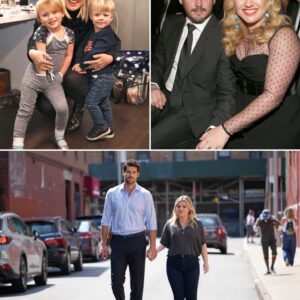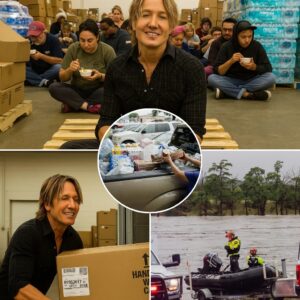“No Lights. No Music. Just Grief.” — John Foster Brings Houston To Tears With A Shattering Tribute To 14 Children Lost In The Flood
It was supposed to be a night of joy. A celebration of music, rhythm, and life. But on July 6, inside a packed stadium in Houston, the air shifted. And for one impossible moment, time stood still.
Fans had come for the hits. The energy was electric. John Foster — the man whose voice has filled stadiums and hearts for years — was in his element, dancing with the crowd, igniting every soul with anthems that made them feel alive. But halfway through a high-tempo set, just as the band launched into a vibrant crowd favorite, something unexpected happened.

John raised his hand.
The music stopped.
The stage lights froze mid-color. The crowd, confused for a heartbeat, slowly hushed.
He stepped into the center of the spotlight, his chest visibly rising and falling with each breath. And then, in a voice barely louder than a whisper, he said:
“Now… I want to dedicate this next song to the 14 children who passed away after the flood.”
A wave of silence swept over the arena. Thousands of people, once dancing and cheering, suddenly stood frozen. Some gasped. Others clutched their mouths. A few had already begun to cry.
The lights dimmed to a gentle amber glow, flickering like candlelight. The band remained still. No instruments. No reverb. Just a single microphone and the sound of a man holding back tears.
And then, from the quiet, John Foster began to sing.
Not the upbeat version of “Home” that fans knew. No, this was something else. Something holy. His voice — fragile, fractured, trembling — turned every lyric into a goodbye. It wasn’t a performance. It was grief turned into melody. A sacred lullaby for the young lives lost far too soon.
“If I had one more minute, I’d carry you through the door… Home is waiting, love. Home is waiting…”

His voice cracked.
But he didn’t stop.
He let the emotion pour through every word — not polished or perfect, but honest, shattered, and deeply human. And in that truth, the crowd began to break with him.
Mothers clutched their children, some holding them tighter than ever before. Grown men wept openly. Couples leaned into each other, shaking with quiet sobs. And in the silence between verses, you could hear it — not the silence of an audience, but the sound of a thousand hearts breaking together.
There were no visuals. No effects. Just grief — raw, aching, and unfiltered — rising like smoke into the night sky.
When John reached the final line — “I’m coming home…” — it didn’t feel like the end of a song. It felt like a soul saying goodbye. A cry across the veil. A hand reaching toward the stars for children who would never come back.
No one clapped.
Not out of disrespect — but because it didn’t feel right. The air was too heavy. The loss too real. For nearly a minute, the arena was still, filled only with the quiet sniffles and trembling breaths of 18,000 broken-hearted strangers holding onto each other.
Eventually, John stepped back into the shadows. He didn’t say another word. And he didn’t need to.
Later that night, social media exploded with footage — shaky, tear-streaked videos that captured a moment no one expected and no one could forget. Fans flooded the comments with prayers, poems, and personal memories of the flood’s toll. One mother wrote: “I lost my niece in the flood. Tonight, you gave us the song we didn’t know we needed.”
John Foster hasn’t made a statement. There’s no press release. No single to promote. But maybe that’s the point.
Because what happened in Houston wasn’t meant for headlines. It was for the 14 children who never made it home. It was for their families. It was for every broken heart still learning how to keep beating.
And somehow — in that darkness — came the most luminous moment of all.





